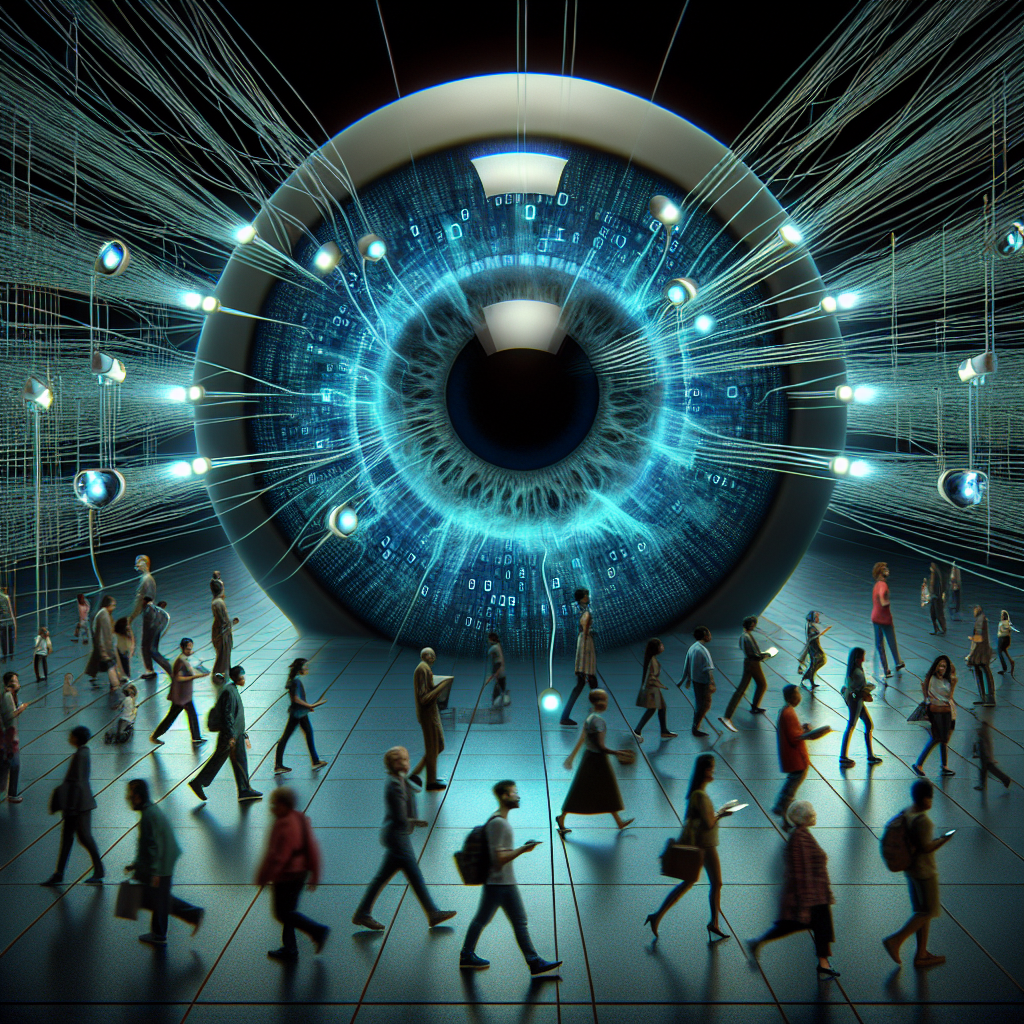Unmasking the Digital Panopticon: An Insightful Dive Into Modern Surveillance
In the whirlwind of digital evolution, the tapestry of privacy has worn thin, unraveling across a landscape where shadowy surveillance looms like a specter over the tech sphere. It's a tale of Scooby-Doo ghost towns stumbling upon 21st-century liquor stores while the insidious creep of Big Brother watches, unblinking, from every smart device, street corner, and, yes, the very phone in your pocket.
The Siren Call of Modern Convenience
Embrace it or not, the modern world has transformed into a dichotomy of convenience battling with the chains of scrutiny. We marvel at the wonders of instantaneous communication and revel in the digital cornucopia of online shopping, yet this comes hand-in-hand with a pinch of paranoia, knowing that behind the curtain lies a consortium of prying eyes, ceaselessly documenting our every digital footprint.
And as this shift solidifies into the mundane, the populace at large remains blissfully ignorant or perhaps, in a state of resigned acceptance. After all, in an age where your refrigerator knows more about your dietary habits than your doctor, the notion of privacy seems quaint, a relic of a bygone era.
The Faustian Pact with 'Big Tech'
The Illusion of Choice in the Surveillance Bazaar
As we wade deeper into the surveillance bazaar, the illusion of choice skews perception. Users rummage through digital marketplaces, picking and choosing from a smorgasbord of apps and services, all the while unaware that they are mere pawns in the grand data harvesting chess game. The reality is stark; the FISA tug-of-war in Congress merely epitomizes the murky waters of national security versus personal liberty.
The 'No Warrant' Conundrum
The evergreen debate on privacy has seen the recent ruffle of feathers with FISA's warrantless surveillance Powers. The proverbial kick of the can, a 'short-term' extension, ensures the continuation of Big Brother's vigilant gaze. The governmental merry-go-round of extensions paints a Sisyphean picture of our privacy rights – a battle seemingly without end.
Tech Giants Under the Microscope
And as Uncle Sam's watchful eyes persist unabated, the FTC's magnifying glass hovers over the Microsoft–Open AI liaison. It's a tango of transparency and power, where the dance floor is fraught with scrutiny and the shadow of antitrust inquiries looms large.
The Ubiquity of Surveillance
The Postmaster General's Commandments
The omnipresence of surveillance doesn't pause at your doorstep, with the Postmaster General's edict against blaming Amazon for mail delays. It's an Orwellian dictate - a seemingly benign facade masking the prioritization of commercial interests over individuals' medical deliveries, cloaked in the guise of operational efficiency.
The Incessant Expansion of the Watchers' List
Nary a facet of life escapes notice in today's climate. The terror watchlist, now a staggering manifesto of 2 million souls, stands as a testament to the insatiable appetite for data, a hunger that recognition technologies and the likes of AI political callers named Ashley only exacerbate.
The Cloak of Anonymity Dwindles
Anonymity as the Final Frontier
In the relentless onslaught against anonymity, the chorus of tech executives clamors for the sanctity of American voice, with Nikki Haley proposing outlandish vetting measures that make a mockery of the Statue of Liberty's creed. Meanwhile, social media anonymity becomes a vanishing mirage, leaving digital speech at the mercy of regulatory whims.
AI Invades the Judiciary
Even the hallowed halls of justice are not immune, as UK judges flirt with the allure of AI assistance, raising the specter of algorithmically crafted legal edicts that prompt one to question the sanctity of human jurisprudence. It's a world where neural networks could dictate the letter of the law, and the distinction between human and machine-drafted legalities blurs.
The Future of Privacy Rights
In the grand theater of digital rights, the audience watches with bated breath as the storyline unfolds. Adobe's scuffle with the FTC over its subscription cancellation labyrinth serves as a cautionary tale of corporations' predilection for ensnaring consumers in webs of convoluted policies. However, there's a fizzling flicker of hope as judge-mandated oversight of push notification data emerges and the FCC's banishment of termination fees for cable and satellite services hints at a pushback against corporate chokeholds.
It's an epoch where the narrative pendulum swings unabated between autonomy and surveillance, painting a Socratic landscape of debate and introspection. The complexities of privacy, freedom, and security lock horns in an eternal dance, each vying for dominion over the digital terrain that has become the lifeblood of contemporary society.
As the stage is set for the next act in this saga, the question lingers in the ether: will the essence of privacy endure, or will the digital panopticon's unyielding gaze erode the final remnants of our intimate sanctuary? The answer, it seems, is a chapter yet to be written in the annals of this, the Age of Information.
Related News
- Navigating the Turbulent Digital Seas: A Dissection of the Latest Tech Tempest
- Navigating the Absurdity of Today's Data Dystopia: An Analysis
- The Unseen Threads of Tech, Government, and Society: Decrypting Our Digital Destiny
- The Ebb and Flow of Digital Governance and Security
- The Tumultuous Tempest of Tech Titans: An In-Depth Dissection
